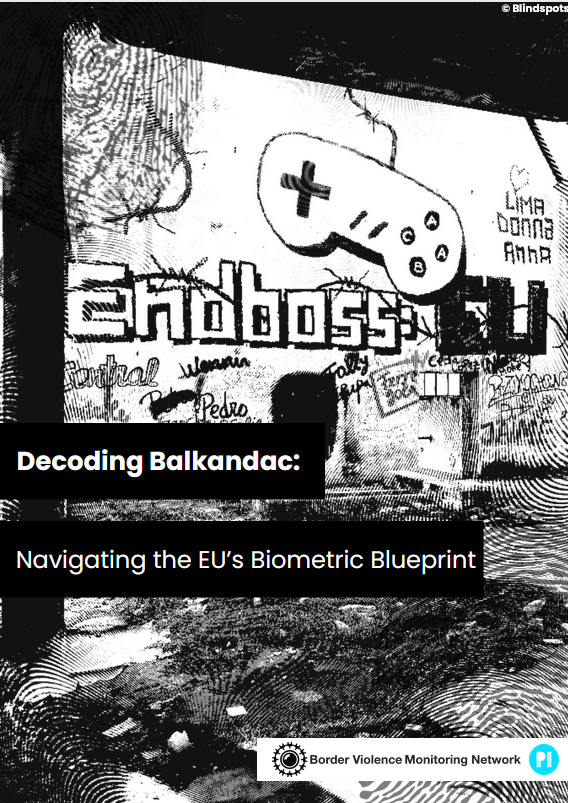This report, authored by the Border Violence Monitoring Network with support from Privacy International, investigates the development of interoperable biometric databases, akin to Eurodac, in the Western Balkans, referred to as the “Balkandac” system. It highlights a lack of transparency in current regional data-sharing systems and underscores the significant role of EU institutions in their creation.
The report employs a comprehensive methodology, combining grassroots observations, open-source research, and Freedom of Information Requests (FOI) submissions to address human rights violations.
This report aims to contextualise recent developments towards the digitalisation of biometric data collection in the Western Balkans into wider shifts in migration policy and data-sharing frameworks at the EU level. In order to achieve this, the report first unpacks the key regulations envisioned under the EU’s New Pact on Migration and Asylum and how these are envisioned to operate within EU Member States. Collectively, they establish a system whereby people on the move are prevented from entering the territory of Member States, subjected to expedited procedures, and returned directly to “safe third countries”. This manifests as a legalisation of the pushback process; individual claims will undergo insufficient scrutiny within compressed timeframes and procedural rights, such as access to free legal aid and the suspensive effect of appeals against inadmissabiliy decisions, are not yet guaranteed at the time of writing. These legal shifts unequivocally obstruct access to the right to asylum within the new regulatory framework.
A key ongoing development in this line is the development of biometric data collection systems that are modelled off the EURODAC system, allowing for seamless interoperability in the future. Funding from the EU’s Instruments for Pre-Accession Assistance and bilateral agreements with Member States have supported these data systems in the Western Balkans, mirroring Eurodac. Critiques arise from increased interoperability of EU databases, which blur immigration and criminal law purposes, lack anti-discrimination safeguards, and bypass key data protection principles.
The core issue lies in the balance between personal data protection and fundamental rights, contrasted with the use of biometric systems for mass surveillance and data analysis. The report emphasizes the merging of migration and security discourses, underscoring the potential for unjust criminalisation of migrants, making it harder for them to seek asylum and international protection.

